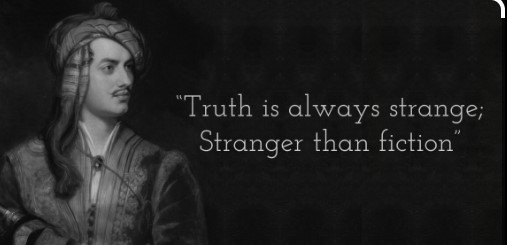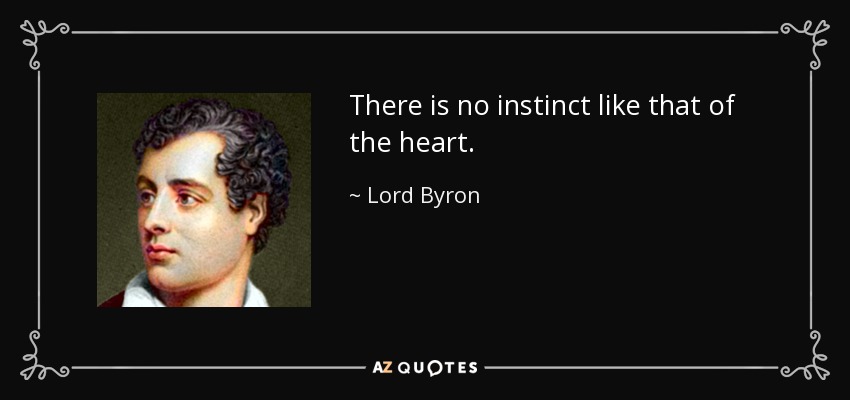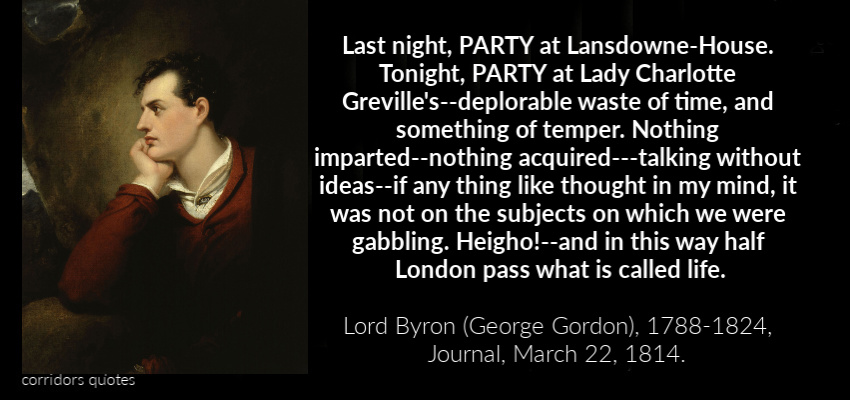Lord Byron’s poem “She Walks in Beauty” is one of his most famous works, celebrated for its lyrical beauty and evocative imagery. In this quote, Byron compares the woman he admires to a beautiful night sky, clear and full of stars. The line illustrates how Byron elevates the woman’s beauty beyond mere physical appearance, seeing it as a reflection of purity, peace, and grace. The woman is depicted not only as beautiful externally but as possessing an inner beauty that radiates outward. The comparison to nature, a cloudless night with starry skies, conveys her serene and perfect allure—an image that invokes both wonder and admiration.

Byron’s connection to nature often blurred the boundaries between the physical world and the emotional world, with his characters frequently finding their own reflections in the landscapes he described. In this case, the night sky symbolizes the woman’s calm and unobstructed beauty, something rare and precious. The quote demonstrates Byron’s skill in marrying natural imagery with human experience, a hallmark of Romantic poetry.
On the Nature of Truth
Quote: “Truth is always strange, stranger than fiction.”
— From “Don Juan”
In this quote, Byron turns conventional wisdom on its head. The statement suggests that reality is often far stranger than anything fiction could invent. Byron’s perspective reflects his disillusionment with society and life in general. In Don Juan, one of his most famous and satirical works, he portrays truth in its most complex and unexpected forms. While fiction may follow predictable patterns and structures, the events of life are chaotic, often illogical, and filled with twists and turns that defy comprehension. Byron’s writing often explores the absurdity of life, and in this quote, he suggests that the strange, unpredictable nature of real life is far more bewildering than the tales we fabricate for entertainment.

Byron’s work consistently shows a distrust of traditional narratives, whether they are the conventions of literature or the moral lessons of society. This line encapsulates his often cynical view of the world, highlighting the gap between idealized representations of reality and the often unpleasant truths we encounter.
On Human Existence and Sensation
Quote: “The great object of life is sensation – to feel that we exist, even though in pain.”
— From “Don Juan”
This quote speaks to Byron’s existential philosophy about the nature of life and human experience. For Byron, the intensity of feeling—whether joy, love, sorrow, or pain—was essential to affirming one’s existence. In this line, Byron suggests that even pain has value, as it provides a vivid reminder of life itself. This idea is deeply rooted in Romanticism, which emphasized individual experience, emotional depth, and the personal connection to life’s highs and lows.
The quote also speaks to the notion that human beings seek sensation to combat the potential numbness of existence. Life becomes meaningful when we are fully immersed in our feelings, even if those feelings are painful or tragic. Byron often explored themes of melancholy, passion, and despair in his works, reflecting a worldview that recognizes suffering as an inevitable but necessary part of the human condition. For Byron, avoiding sensation—whether it be the ecstasy of love or the agony of loss—would mean losing touch with what it means to truly live.
On the Heart and Instinct
Quote: “There is no instinct like that of the heart.”
— From “The Giaour”
In The Giaour, a narrative poem steeped in Eastern mysticism and tragic love, Byron emphasizes the power of the heart’s instincts. This quote suggests that emotional impulses, particularly those related to love and desire, are some of the strongest forces in human nature. Byron often wrote about characters driven by passion, particularly the passions of love, revenge, and betrayal, and he was interested in how these emotions could transcend reason and social constraints. For Byron, the heart’s instincts were primal, often uncontrollable, and could lead to both profound beauty and destruction.

The emphasis on the heart’s instinct points to the Romantic ideal that emotions, particularly intense ones, should not be suppressed but embraced as a core part of the human experience. In The Giaour, the powerful feelings of love and vengeance take center stage, driving the characters toward both salvation and ruin. Byron suggests that the heart’s instincts, though irrational at times, should not be dismissed, as they define our deepest truths and motivations.
On Writing and Creativity
Quote: “If I don’t write to empty my mind, I go mad.”
— Lord Byron’s personal sentiment on writing
Lord Byron’s relationship with writing was intensely personal and therapeutic. This quote reveals his need to express himself through words to maintain his sanity. Writing, for Byron, was more than a creative endeavor—it was a way of managing his emotions and maintaining a sense of equilibrium in a life that was often chaotic and tumultuous. Byron’s works reflect his inner conflicts, his frustrations, and his desires, often channeled into poetry, which became his outlet for expression.
Byron was notorious for his restlessness and his struggles with depression and personal turmoil, which were reflected in the passionate and sometimes destructive behavior of his characters. His writing was a way to combat madness, a cathartic exercise that allowed him to confront his inner demons. This quote reinforces the idea that for Byron, art was not merely an aesthetic pursuit but an essential part of his mental survival.
On Self-Trust and Human Nature
Quote: “We are all selfish and I no more trust myself than others.”
— From “Don Juan”
In this quote from Don Juan, Byron touches on a key aspect of his cynical view of humanity: the inherent selfishness of people. He admits that he is no less susceptible to selfish tendencies than others, reflecting a deep sense of skepticism about human nature. Byron often portrayed characters who, despite their charms or heroism, were flawed and driven by their own desires, weaknesses, and contradictions. In this way, he reflects a more pessimistic view of people, acknowledging that everyone, himself included, is motivated by self-interest.

This quote is a recognition of human frailty and complexity. Byron was acutely aware of the darker aspects of the human psyche, and his works often explored how self-interest and vanity could lead to moral corruption. In this line, he does not position himself as any better than others, suggesting that human nature, by its very design, is imperfect and often selfish. His characters, particularly in Don Juan, reflect this complexity, struggling with their desires, relationships, and the consequences of their actions.
On Friendship and Enmity
Quote: “The best way to destroy an enemy is to make him a friend.”
— Attributed to Lord Byron
In this quote, Byron advocates for reconciliation over conflict, suggesting that transforming an enemy into a friend is the most effective form of resolution. While this may seem contrary to Byron’s often combative and rebellious public persona, it aligns with his deeper understanding of human relationships. Byron was no stranger to enmity—his life was filled with controversies, feuds, and intense personal rivalries. However, this quote hints at a more strategic and wise approach to handling conflict.
The idea of turning enemies into allies reflects an insight into human psychology, where people often resist or fight against that which they do not understand or fear. By changing the nature of the relationship, the tension can be diffused. Byron’s own life, filled with passionate entanglements and feuds, suggests that he understood the benefits of both confrontation and reconciliation. The quote embodies a more diplomatic, albeit surprising, approach to dealing with adversaries.
On Love and Nature
Quote: “I love not man the less, but Nature more.”
— From “Childe Harold’s Pilgrimage”
This line from Childe Harold’s Pilgrimage expresses Byron’s profound connection to nature. While the Romantic movement was often about a return to nature and finding solace in the natural world, Byron’s version of this connection was more complex. He did not reject humanity, but his connection to nature allowed him to escape the disillusionments and frustrations of human society. This quote reflects the often romanticized notion of nature as a pure and untainted refuge, in contrast to the corruptions and moral failings of civilization.
Nature, for Byron, was an eternal, unchanging force, whereas human affairs were filled with turmoil and folly. His love for nature was not just an aesthetic appreciation, but also a refuge from the complexities and disappointments of life. In Childe Harold’s Pilgrimage, nature becomes both a literal and metaphorical escape, providing a sense of peace and a deeper understanding of life’s meaning.
On Fame and Youth
Quote: “Fame is the thirst of youth.”
— From “Don Juan”
This quote captures Byron’s view of fame as something driven by youthful ambition and vanity. The desire for fame, according to Byron, is particularly potent in youth, when the individual is striving to make a name for themselves and find validation. However, Byron suggests that fame is ultimately an insatiable thirst—something that, once attained, often fails to provide the satisfaction it promises. This reflects his own complicated relationship with fame, as he was constantly in the public eye and yet often felt the emptiness of his notoriety.

Byron himself was a celebrity poet, admired by many and often surrounded by public attention. Yet he was also disillusioned by the superficiality of fame and its fleeting nature. His characters, too, often grapple with the consequences of seeking glory, revealing the emptiness behind the pursuit of fame. The quote highlights the transient, ultimately unsatisfying nature of fame, especially for the young who seek it without understanding its limitations.
Frequently Asked Questions
What is one of Lord Byron’s most famous quotes on life?
“The great object of life is sensation—to feel that we exist, even though in pain.”
What did Lord Byron say about love?
“Love will find a way through paths where wolves fear to prey.”
What is Lord Byron’s view on freedom?
“Freedom is the only thing worth living for.”
What did Lord Byron express about human nature?
“I am not averse to love, but I cannot bear to be loved.”
What did Lord Byron say about fame?
“Fame is the thirst of youth.”
How did Lord Byron view passion?
“The best way to be missed when you’re gone is to stand for something when you’re here.”
What was Lord Byron’s perspective on happiness?
“Happiness is the most insidious thing in the world. It is so much easier to be miserable.”
What did Lord Byron say about his own legacy?
“I am not the first to say that I will not be the last.”
Conclusion
Lord Byron’s quotes reflect his deep understanding of human emotions, passion, and the complexities of life. As a poet, he explored themes of love, freedom, and the pursuit of happiness, often with a sense of defiance and individuality. His words continue to resonate today, offering insight into the human condition and the timeless struggles between love, fame, and the quest for meaning. Byron’s legacy as a literary figure remains profound, with his works and quotes inspiring generations to explore life’s passions, challenges, and desires.
